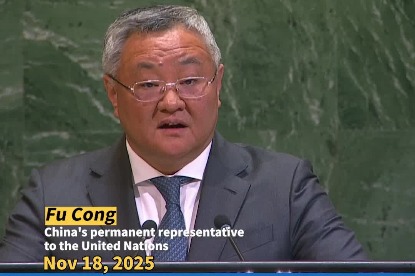Former US commerce secretary: US tariffs could push China 'over the cliff'


US tariffs could push China "over the cliff" and eventually drag down the global economy, said former US Commerce Secretary Carlos Gutierrez.
"That's not good for the world. We may think that China's rise may be bad for the US, that China is a strategic competitor ... but the moment China's growth rate declines, we will regret it," he said in an interview with CNBC at the Milken Institute's annual Asia Summit in Singapore. Gutierrez served under former President George W. Bush
The extent of China's slowdown depends on "how much damage we do with these tariffs," added Gutierrez, now the chair of consultancy Albright Stonebridge Group. He said if President Donald Trump imposes tariffs on every Chinese product that enters the US, the impact on China would be big.
The US has implemented tariffs on $50 billion of Chinese imports, to which Beijing retaliated. Washington has ended a public comment period for an additional $200 billion of tariffs worth of goods from China and before that's imposed, Trump said he's "ready to go'' with levies on an additional $267 billion worth of Chinese products.
While some issues that have been raised are worth looking into, Trump's calling out China in public can't resolve them, said Gutierrez.
"I would take a private approach. The problem with doing it in public is that it can humiliate a country. We're talking about sovereign countries, not businesses, and to put China in a position of publicly being called out and potentially publicly humiliated, publicly losing face, that can't succeed," he said.
On Thursday China welcomed an offer from the Trump administration to discuss trade. Chinese Commerce Ministry spokesman Gao Feng said that the two governments were discussing details for a new round of negotiations.
Gutierrez said that it's a sign of progress that the US appears to be willing to talk with China.
"It could resolve in a deal, I just don't know how much it will achieve the president's goals," he said. "We need to understand that trade is part of what drives growth and I think that it's a very dangerous assumption that if our trade deficit is high, we're losing."
































